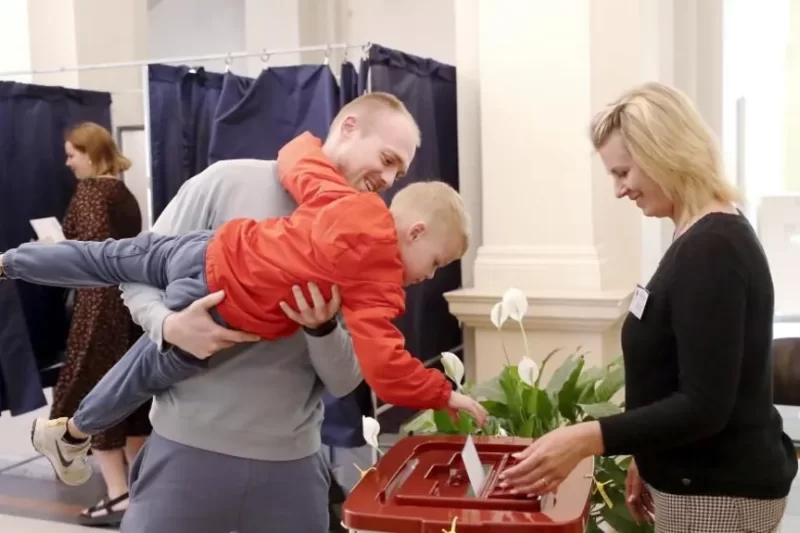Millions Voting on Final Day of EU Elections as Right Seeks Surge
Europeans in 20 countries are going to the polls on the biggest and final day of voting for the European Parliament.
In a year of pivotal elections, the EU vote is especially significant, on a continent witnessing polarised politics and increased nationalism.
The run-up to the vote has been marked by violent incidents - although an attack that left Danish Prime Minister Mette Frederiksen with minor whiplash and forced her to halt campaigning is not being seen as politically motivated.
Europe’s main centre-right grouping is expected to come top across the EU when first projections emerge later on Sunday, however three parties on the far right all have their eye on winning the most seats nationally.
France’s National Rally, Italy’s Brothers of Italy and Austria’s Freedom Party are leading in the polls, as is Belgium’s separatist and anti-immigration party, Vlaams Belang.
Voting already began on Thursday, Friday and Saturday for some EU countries - but the majority of EU member states are voting on Sunday. The European Parliament is the direct link between Europeans and the EU's institutions.
Voting for 16-year-olds
Sixteen- and seventeen-year-olds will be able to vote for the first time in Germany and Belgium, increasing the size of Europe’s youth vote. Young Austrians and Maltese have been able to vote from 16 for some time, and Greeks can vote from 17.
In Germany alone there are an estimated 1.4 million eligible 16 and 17-year-olds among about five million first-time voters, so they could make a difference to the outcome.
The far-right Alternative For Germany (AfD) has claimed success in attracting young men especially, through campaigns on social media platforms such as TikTok.
Belgians are also voting in federal and regional elections, as well as in the European vote. Voting in Belgium is compulsory, and 16-year-old Princess Eléonore cast her ballot for the European election, along with Crown Princess Elisabeth and their two brothers.
But there was little enthusiasm among young Belgians ahead of the vote in the Flemish town of Aalst.
Vlaams Belang has won there before, although until now no other party has been willing to work with it. One young woman called Simona said young people especially were keen on their anti-immigration stance: “They like their policies on people coming here from abroad.”
Many of the town’s young voters approached by the BBC said they had not yet decided how they would vote, on a European or national level.
Dutch anti-Islam populist Geert Wilders visited Aalst on the eve of the vote to boost Vlaams Belang’s chances.
Dutch voters went to the polls on Thursday and exit polls have already suggested his party is narrowly behind a left-green alliance. The result will not be known until Sunday evening.
Belgians are also voting in federal and regional elections, as well as in the European vote. Voting in Belgium is compulsory, and 16-year-old Princess Eléonore cast her ballot for the European election, along with Crown Princess Elisabeth and their two brothers.
But there was little enthusiasm among young Belgians ahead of the vote in the Flemish town of Aalst.
Vlaams Belang has won there before, although until now no other party has been willing to work with it. One young woman called Simona said young people especially were keen on their anti-immigration stance: “They like their policies on people coming here from abroad.”
Many of the town’s young voters approached by the BBC said they had not yet decided how they would vote, on a European or national level.
Dutch anti-Islam populist Geert Wilders visited Aalst on the eve of the vote to boost Vlaams Belang’s chances.
Dutch voters went to the polls on Thursday and exit polls have already suggested his party is narrowly behind a left-green alliance. The result will not be known until Sunday evening.
(Source:BBC)













